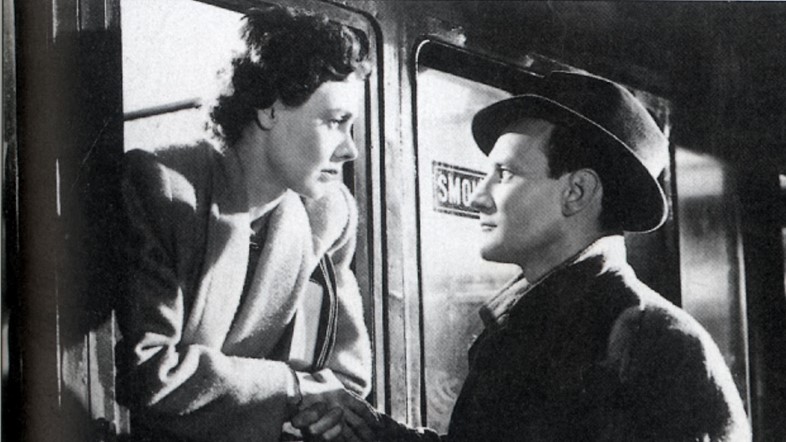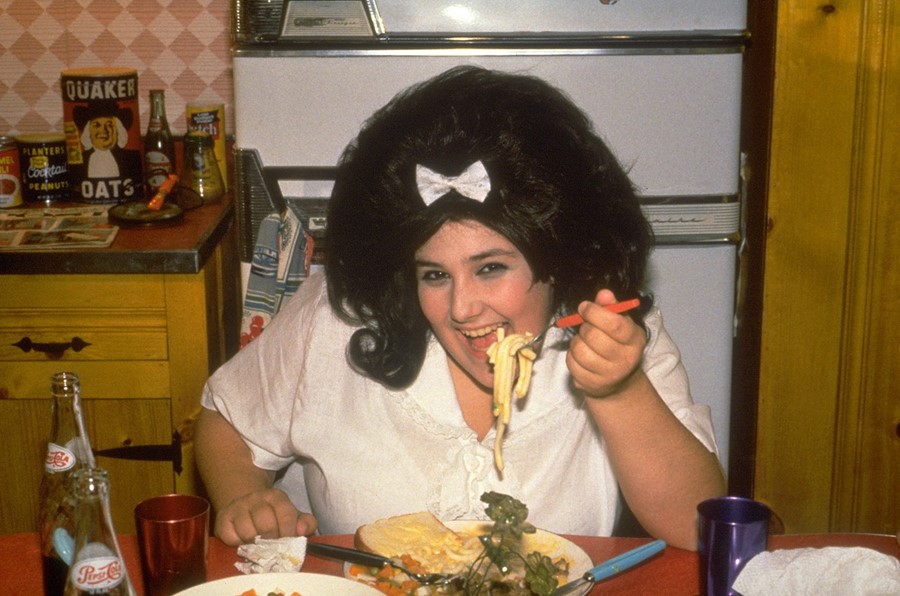As Chi-Raq and The Dreamed Ones, two brilliant new films with strong poetic ties, hit UK cinemas, we pay testament to the power of verse on screen
“A film is never really good unless the camera is an eye in the head of a poet,” cinematic polymath Orson Welles once proclaimed. And it is perhaps for this very reason that so many of the world’s greatest directors feel such a close affinity to poetry and its pioneers, often taking the opportunity to celebrate verse through the highly complementary medium of film. As lauded auteur Jim Jarmusch, whose latest film Paterson centres on a bus-driver-cum-modernist-poet, noted in a recent interview with the Guardian, “What I love about film is it has all the other forms inside of it. It has composition, music, time, language, everything.”
Today sees the release of not one but two brilliant new films with strong ties to poetry: The Dreamed Ones, the first fictional endeavour from acclaimed Austrian documentary maker Ruth Beckermann, inspired by the love letters and poetry exchanged by poet Paul Celan and author Ingeborg Bachmann in post-war Europe, and Chi-Raq, the latest offering from the inimitable Spike Lee. The latter is a modern-day rendition of Aristophanes’ ancient Greek comedy Lysistrata, and sees an outstanding cast, including Samuel L. Jackson and Teyonah Parris, spouting rhyming couplets as the heroine’s cunning scheme for peace in a violence-riddled Chicago unfolds. Here, as both films reach UK screens, we remember seven other perfect examples of poetry in motion (pictures).
Hairspray (1988)
The opening line of Allen Ginsberg’s Howl – “I’ve seen the best minds of my generation destroyed by madness, starving, hysterical, naked” – wends its way into John Waters’ 1988 movie Hairspray. The film was the director’s first commercial hit, which is just as well as the rights to the poem cost him $1000. It is read by a blunt-fringed Pia Zadora who plays a sultry beatnik chick among a vibrant cast of 1960s stereotypes. “I had to call Allen Ginsberg and get his permission for Pia Zadora to read it, and I think the agent was totally thrown by that call,” the Pope of Trash once recalled. “I had to pay him certainly... to read that great poem. But when I was 15, [that poem had a] huge influence on me.”
Hannah and Her Sisters (1986)
Michael Caine’s bumbling British businessman Elliot turns to the poetry of radical American wordsmith E.E. Cummings to woo his wife’s sister, Lee (played by Barbara Hershey), in Woody Allen’s acclaimed 1986 comedy-drama, Hannah and Her Sisters. After staging an accidental meeting with Lee outside her SoHo apartment block, Elliot asks her to direct him to the nearest bookstore, where he buys her a book of Cummings’ work, declaring that the poem on page 112 reminds him of her. This as it transpires is somewhere i have never travelled, gladly beyond – a heart-stoppingly romantic piece ending in the line “nobody, not even the rain, has such small hands” – which, as she reads it in bed that night, reveals to Lee the true extent of her brother-in-law’s devotion.

Brief Encounter (1945)
A poignant reference to Keats’ transcendent poem When I Have Fears That I May Cease to Be punctuates David Lean’s beloved 1945 drama. Sitting by the fire with his adored wife Laura, whom he can sense is slowly slipping from his clutches, Cyril Raymond’s sweet and patient Fred Jesson turns to her for help with a crossword clue. “You're a poetry addict,” he says. “See if you can help me over this. It’s Keats. ‘When I behold, upon the night’s starr’d face, Huge cloudy symbols of a high....’ Something that’s seven letters.” The missing word is of course, romance, as Laura is swift to point out – the key word in a poem that beautifully summarises the poet’s fear of mortality, and his longing to experience the richness of passionate love, much like Laura herself.
The Piano (1993)
The final words we hear spoken in Jane Campion’s stirringly lyrical film The Piano – the tale of Ada McGrath, a mute Scottish pianist sold into marriage in 1850s New Zealand – are the first three lines of Thomas Hood’s Petrarchan sonnet Silence. In a drama bursting with metaphors, the poem, read by Holly Hunter’s no-longer-silent protagonist, resonates with deeper meaning – an intimation not only of Ada’s former muteness but also of her mourning for her treasured instrument.
Into the Wild (2007)
The moving true story of itinerant traveler Christopher McCandless, a young man who abandons his life of privilege and ventures into the American wilderness in search of greater meaning, Sean Penn’s excellent 2007 movie namedrops many great writers, from Byron to Thoreau. But perhaps the most powerful literary allusion occurs when Christopher, flawlessly portrayed by Emile Hirsch, reads Sharon Olds’ 1973 poem I Go Back To May to his sister, using the poet’s exquisitely constructed sentiments of betrayal to express his own feelings about their parents.
Slam (1998)
Marc Levin’s Slam is an unmissable ode to the redemptive power of verse. The film centres on Ray Joshua (Saul Williams), the resident bard of his Washington D.C. housing project, whose talent for poetry delights both the local children he recites it to and the friends who claim it as their own in the pursuit of women. However, things take an unpleasant turn when a petty drugs charge sees Ray fall victim to the criminal justice system. While awaiting his trial behind bars, the poet turns to his art for release, catching the eye of the prison’s pretty and passionate writing teacher Lauren Bell, who inspires him to realise his true creative potential. Interestingly, most of the film’s rousing poems, reflecting on the harsh realities of inner-city life (especially for black males), were written by Williams himself.
Blade Runner (1982)
Our final favourite poetic reference on film comes courtesy of Ridley Scott’s iconic 1982 fantasy Blade Runner, and is in fact a misquote rather than a quote. It is uttered by Roy Batty, replicant leader and principal antagonist who, as it turns out, is rather well-versed in William Blake. The movie boasts a distinct subtext in Christian allegory, with Roy Batty sharing notable traits with Lucifer – like the notorious fallen angel, he has plummeted from paradise, preferring to “reign in hell” (AKA Earth) than “serve in heaven”. This point is galvanised by his deliberate subversion of the Blake line “Fiery the angels rose...”, from America, A Prophecy, whereby he switches the word ‘rose’ for ‘fell’.
The Dreamed Ones and Chi-Raq are in cinemas from today.
